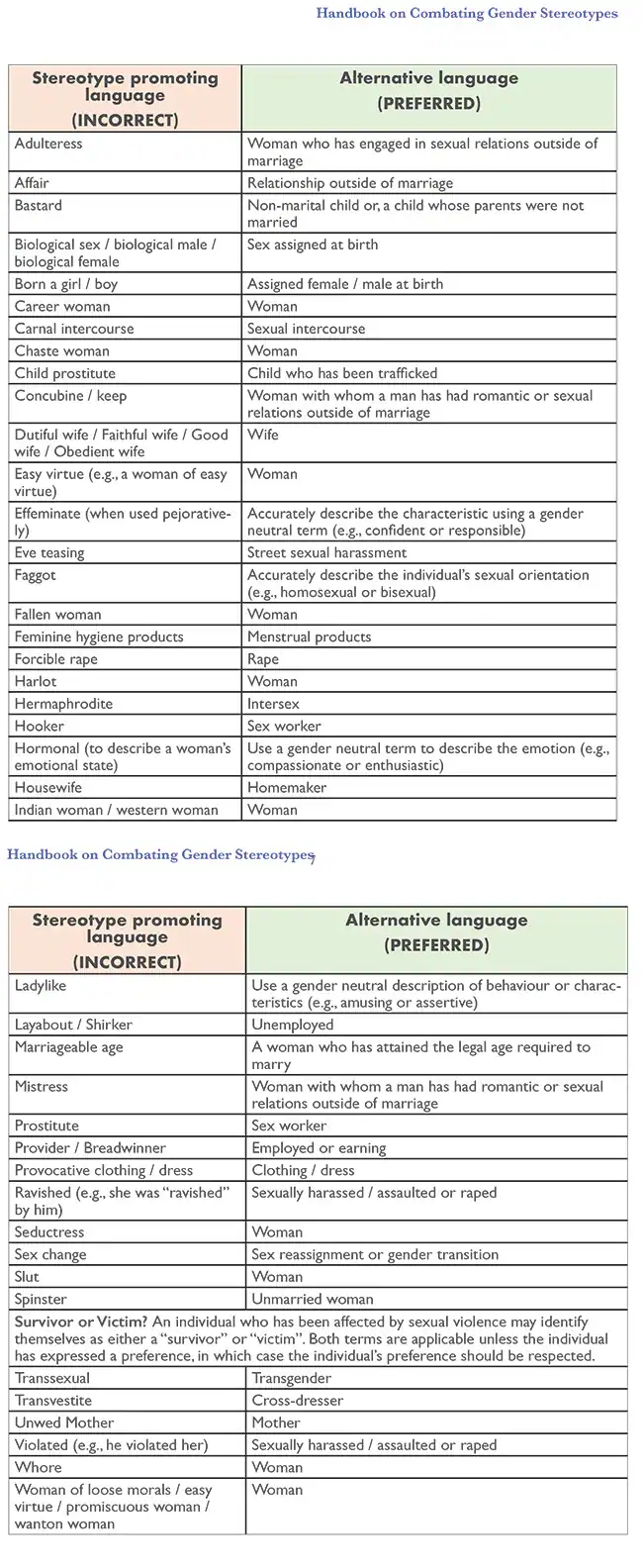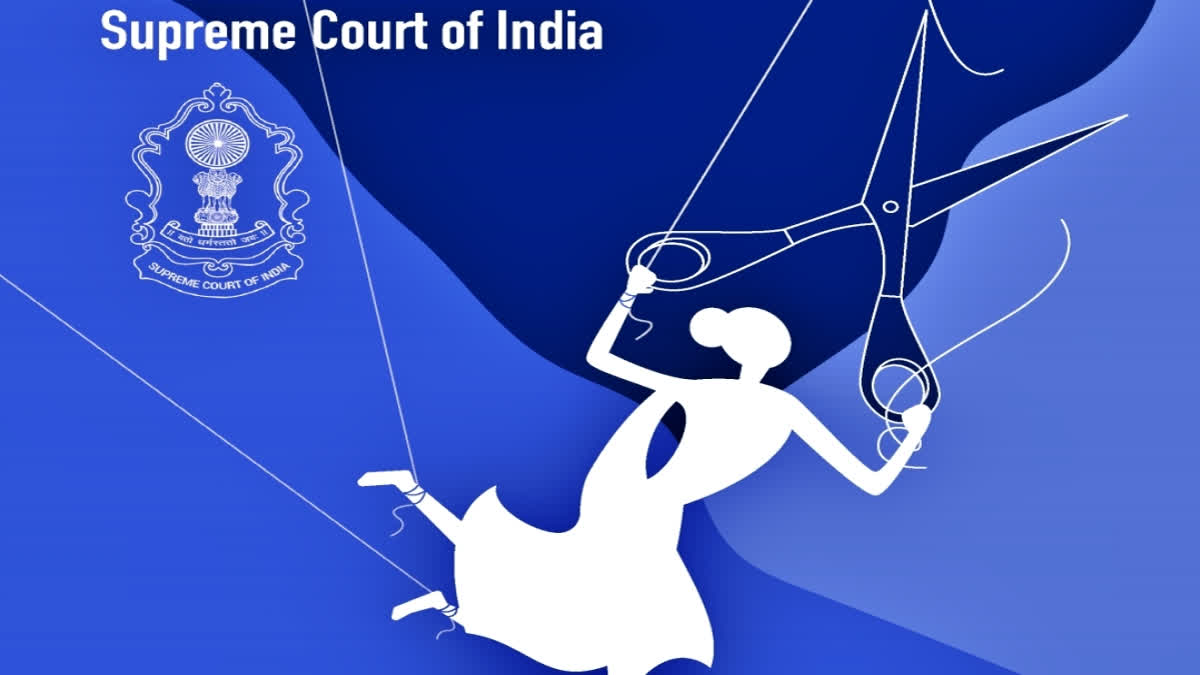New Delhi: In a major development, the Supreme Court Wednesday said no to words like 'dutiful wife', 'concubine', 'prostitute', 'hooker', 'whore', 'ladylike', 'prostitute', 'chaste woman', and 'housewife' among others part of over 40-odd words identified as harmful gender stereotypes particularly about women in judicial decision making and writing.
The apex court pointed out the words and offered their replacements in its latest handbook to sensitise judges against inadvertently furthering gender biases by using these words in legal proceedings. The handbook stressed that the use of stereotypes by judges also has the effect of entrenching and perpetuating stereotypes, creating a vicious cycle of injustice.
Chief Justice of India DY Chandrachud launched the 30-page 'Handbook on Combating Gender Stereotypes' Wednesday morning. According to the handbook, it is vital that judges not only avoid relying on stereotypes in their decision-making and writing but also actively challenge and dispel harmful stereotypes.

It states that if harmful stereotypes are relied on by judges, it can lead to a distortion of the objective and impartial application of the law and this will perpetuate discrimination and exclusion. "We may rely on stereotypes inadvertently, because stereotypes are often internalised and ingrained in our thinking due to societal, cultural, and environmental conditioning. This can make it difficult to identify and avoid relying on stereotypes. However, challenging and overcoming stereotypes is essential to ensuring an equal, inclusive, and compassionate society," reads the handbook.
It has listed several stereotypical words and their alternatives, for example instead of concubine or keep, the alternate language preferred is 'woman with whom a man has had romantic or sexual relations outside of marriage'. Similarly, instead of 'mistress', it is preferred to say 'woman with whom a man has had romantic or sexual relations outside of marriage'. The court also suggests to avoid words like 'fallen woman', 'hooker', 'harlot' among others.
Also read: SC cites SSR case, says 'fine against TV channels must be proportionate to profits made from show'
The handbook states that harmful gender stereotypes have to be done away with in court judgments and emphasizes that challenging and overcoming stereotypes is essential to ensuring an equal, inclusive, and compassionate society.
The handbook says, “Even when judges reach legally correct outcomes, the use of reasoning or language that promotes gender stereotypes undermines the unique characteristics, autonomy, and dignity of the individuals before the court. Using stereotypes, instead of objectively evaluating the situation, goes against the constitutional principle of ‘equal protection of laws’, which posits that the law should apply uniformly and impartially to every individual, irrespective of their membership to a group or category”.
The handbook red-flagged words such as "dutiful wife", "obedient wife", 'slut', 'spinster', and 'ravished', and said if a judge relies on preconceived assumptions about people or groups when deciding cases or writing judgements, the harm caused can be enormous. The handbook also listed a few assumptions about the traits of women and explains why such notions are incorrect: Women are overly emotional, illogical, and cannot take decisions (stereotype) and a person’s gender does not determine or influence their capacity for rational thought (reality); Unmarried women are incapable of taking important decisions about their life (stereotype) and marriage has no bearing on an individual’s ability to take decisions (reality).
The handbook, which has been uploaded on the apex court website, said “judicial reasoning must be based on the individual merits of every case and not on stereotypes. This glossary aims to help the Indian judiciary identify and mitigate the use of stereotypes and stereotype-enforcing language against women in their decision”.
The Chief Justice of India D Y Chandrachud, at the launch of the 'Handbook on Combating Gender Stereotypes', cited several offensive words, which were used for women in past court judgments. He said these words are improper and have been used for women in court judgments and the goal of the handbook is to define these stereotypes and spread awareness among them.



